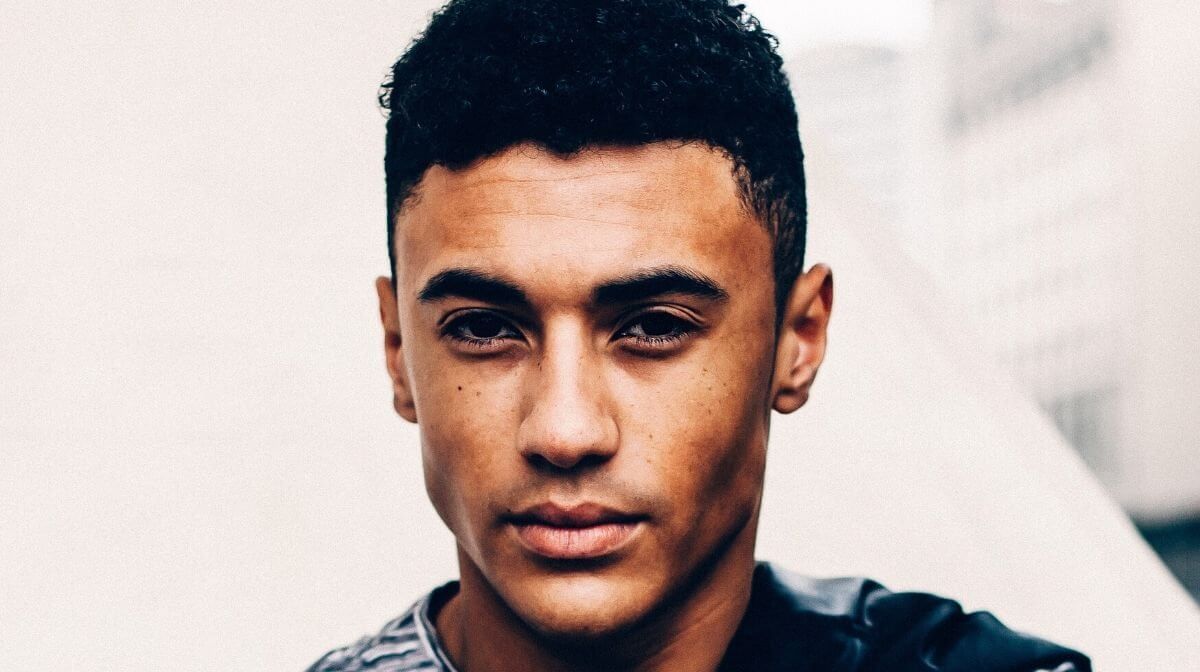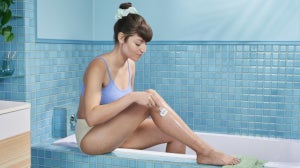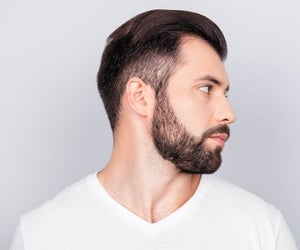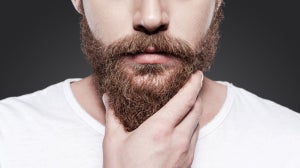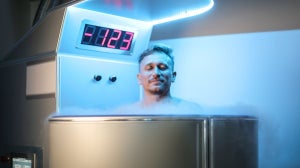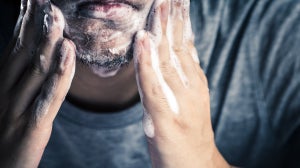
Alopecia and Me
The first time I noticed a small amount of hair loss along my hairline, I was having one of the most exciting experiences of my life. I was young, confident, just starting out as a model, and I’d just landed my first overseas job in Germany - life was good.
I was only a little bit concerned, but spoke to my barber anyway, who reassured me that it’s normal for guys to notice hair loss, and it’s something he sees every day. The bald patch started to grow back, so I put it out of my mind.
But a few weeks later, I started to lose hair all over my head, so I made a doctors’ appointment, where I was diagnosed with alopecia areata. I was worried, scared and extremely emotional, as I had no idea what alopecia areata was, and what the long-term consequences would be. My hair had always been my pride and joy and was one of the things that helped me to feel confident, so having that taken away from me was a huge knock to my self-esteem.
Working in an industry that’s based on appearance, and that’s also extremely competitive, I panicked that my career would be over, and started thinking about what I might have to do long-term.
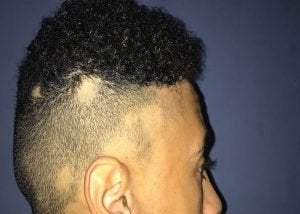
The Different Types of Alopecia
There are three different types of alopecia:
Alopecia, which tends to be characterised by a single bald patch;
Alopecia areata, which can involve multiple localised bald patches, potentially all over the body;
Alopecia totalis, or complete hair loss, where all of a person’s body hair falls out and never grows back.
Alopecia areata caused me to lose around 70% of the hair on my head, arms, legs, chest and even eyebrows as its worst stage, which seriously knocked my self-esteem.
After my initial diagnosis, my doctor referred me to a dermatologist, who suggested several different types of treatment - unfortunately, there isn’t a single guaranteed cure.
Alopecia Treatment: What Worked for Me
I tried a steroid cream first, which I had to apply to my scalp and other affected areas, but it wasn’t successful. I then took my doctor’s recommendation to have steroid injections in my scalp to promote hair growth, again with no success.
Finally, I tried a treatment called DPC - this involves a chemical called Diphencyprone being applied to the area affected by hair loss with the intention of creating a rash and blisters. This is because alopecia occurs when your immune system attacks your hair follicles, so by creating blisters, the immune system’s focus is directed away from the hair follicles.
I had weekly DPC treatment at Salford Royal Hospital, and began to notice my hair growing back after around three months. In the year since then, my hair has continued to grow back thicker, faster and stronger - I'm extremely lucky to be able to say I’ve had 100% hair regrowth.
How Alopecia Made Me Who I Am Today
In hindsight, I can say that I’m glad I experienced alopecia; although I was confident before, I’d say I’m even more confident now. As difficult as the experience was, I think it’s really helped to shape me as a person.
Before alopecia, I was a typical, naïve young lad just trying to get by. But after experiencing such an emotional rollercoaster and all the realisations that came with it, I’m now much more aware of what’s important in life and how we should all treat each other with the respect and sensitivity we’d like to be treated with ourselves, as you never know what’s around the corner.
I’m now much more focused on my health, wellbeing and taking care of my body - I go to the gym regularly, set myself small fitness goals each week and actively try to learn new recipes, eating much healthier as a result.
I also began to write down the jobs I had booked in every week to focus on what I was able to achieve - by setting my sights on my personal progression, I was able to distract myself from my hair.
For me, a profoundly negative experience turned into one of the most positive life lessons of all, and I feel incredibly grateful for that.
My Advice for Other Men Experiencing Alopecia
Firstly, for anyone going through alopecia, or anything else that is beyond their control, the one piece of advice I would give is that you must have faith that it will get better. It can be hard to remain hopeful through such a testing experience, but worrying and stressing over something that you can’t control will only make it worse.
Remind yourself: “I can do this, this is not long-term, it is just my temporary situation for now.” These affirmations helped me massively.
Secondly, stay on top of your physical health, go to the gym and eat healthily, because these factors combined will have a huge impact on the final outcomes.
Finally, remember it’s okay to speak to someone if you’re feeling low or confused, because letting stress build up with no outlet for it will affect your wellbeing in the long run.
I struggled to do this at first, as I never want to put my own problems on other people, but they eventually began to eat away at me. Friends and family who have never been through something similar were still able to make me feel safe and cared for throughout the process and gave me the confidence to believe that I could get through this.
What My Future Looks Like
One year after being discharged from the hospital, I still have 100% hair regrowth. However, there is always a possibility that my alopecia could return.
However, I won’t let it affect me the way it did the first time; now, I’m completely prepared mentally and physically for the potential outcome and know the avenues I can go down for help. I’ll be sure to keep faith and focus on the present.
If anybody is struggling with alopecia themselves and wants to talk about their story, feel free to reach out to me on Instagram or take a look at my YouTube videos that follow my experience.
No one is alone in this, and by making my story public, I hope to be able to help others along their alopecia journey.

